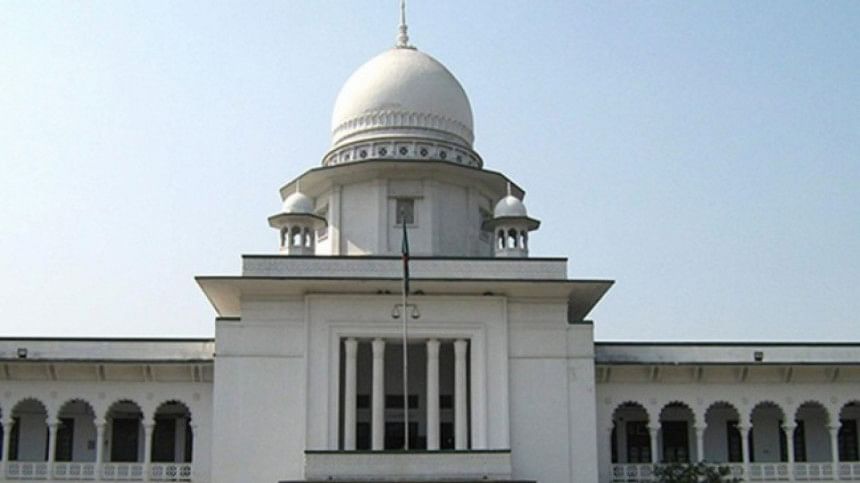Life sentence is 30 years

Life imprisonment means 30 years in jail and a convict awarded such a sentence should get remission of seven and a half years as per the laws, according to a Supreme Court judgement.
In a 120-page judgement released yesterday, the apex court ruled that imprisonment for life apparently means a convict's jail sentence for the rest of his or her life.
"In Bangladesh, life sentences have become a complex patchwork of judicial and executive orders. A young person sentenced to imprisonment for life could theoretically serve many more years in jail than an older person. An older person has a significantly greater chance of serving the rest of his life in jail.
"Many prisoners serving life sentences will likely die in prison. The society should find a humane way of handling life sentences," the Appellate Division of the SC observed in the full text of the verdict.
Interpreting the observations, lawyer Mohammad Shishir Manir told The Daily Star that prisoners who have been sentenced to life imprisonment will have to serve 30 years and will get the remission. It means, convicts awarded life imprisonment will have to remain behind bars for a total of 22 and a half years, he said.
Mohammad Shishir Manir, also the head of legal research organisation Law Lab, said more than 5,000 prisoners, who have been sentenced to life imprisonment by courts, will benefit from the apex court verdict.
Those, who have been in prison for 22 and a half years, will be entitled to be released from jail, he said.
Shishir Manir is a lawyer for a convicted prisoner, Ataur Mridha, who filed a review petition on which the Appellate Division of the SC delivered the verdict.
Shishir's client Ataur, who has been sentenced to life imprisonment, will benefit from the SC verdict. He will have to be in jail for two and a half years more.
On December 1, 2020, a seven-member bench of the Appellate Division, headed by Chief Justice Syed Mahmud Hossain, delivered a short verdict by a majority decision following the review petition filed by Ataur.
Justice Muhamad Imman Ali, senior judge of the bench, disagreed with the six other judges, according to the written verdict.
In the full text of the verdict, the apex court judges observed, "The imprisonment until death has some negative effects within the prison system such as ageing of the prison population and the creation of "super-inmate". Generally, most of the prisoners come from poor and vulnerable communities".
Critics say that life imprisonment denies the prisoner's human rights because it offers no possibility of release and thus no hope for the future.
International human rights law allows life sentences "only in the most serious crimes" and prohibits the use of life imprisonment without parole.
"Life imprisonment, without the possibility of release, leads to indefinite detention in prison, and is known to cause physical, emotional and psychological distress," the apex court said in the full text.
"Prisoners could suffer from ill-health, social isolation, loss of personal responsibility, identity crises, and may even be driven to suicide. The prison is a terrible place to cope with a serious ailment.
"Our prisons are so chock-a-block with inmates that there are not enough spaces for them to sleep. The enormous increase in prison populations has led to severe prison overcrowding.
"The incarceration rates continued to climb throughout the last few decades. In some jails, prisoners have reported sleeping in shifts because there is not enough room in the cells for all of them to lie down at the same time. Overcrowding increases the stress put on the inmates."
Ataur Mridha filed the review petition challenging an apex court verdict that on February 14, 2017 commuted his death penalty to life imprisonment in a murder case.
The Appellate Division bench, headed by the then chief justice Surendra Kumar Sinha, had said life imprisonment means jail sentence until natural death of the convict.
Ataur submitted the petition to the SC, seeking review of its judgment the same year.
The SC in the full text of verdict stressed the need for a statutory guideline for the sentencing policy.
"There is no guidance to the judge in regard to selecting the most appropriate sentence of the cases. The absence of sentencing guidelines is resulting in wide discretion which ultimately leads to uncertainty in awarding sentences. A statutory guideline is required for the sentencing policy. Similarly, a properly crafted, legal framework is needed to meet the challenging task of appropriate sentencing."

 For all latest news, follow The Daily Star's Google News channel.
For all latest news, follow The Daily Star's Google News channel. 



Comments